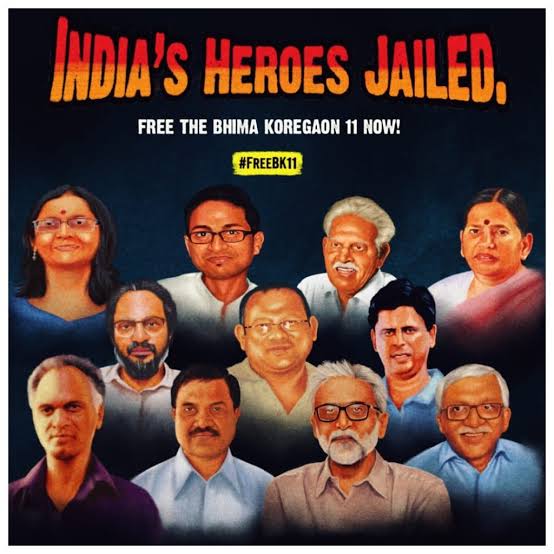On Monday, Varavara Rao’s lawyer told the Bombay High Court that the poet-activist, who is admitted at the Nanavati Hospital, is “almost on his deathbed”. “Besides COVID-19, he suffers from several ailments, he is hallucinating and is delirious”, the lawyer stated. In such a condition, one might reasonably expect that the judiciary would finally grant him bail. Yet, despite his serious health condition, Rao has not been granted bail and his family has not been allowed to meet him.
It seems to have almost bypassed public consciousness that Varavara Rao and his fellow activists are under-trials, against whom no crime has actually been proved. They have been accused on the basis of flimsy evidence and fictitious claims.
Instead, the NIA submitted to the High Court that Varavara Rao, “under the garb of the current situation on the account of a global pandemic of COVID-19 and his old age is trying to take undue benefit of the situation in seeking bail”.
We are reminded of Rao’s poem, where he asks; “In what discourse, can we converse, with the heartless?”. The state’s callous treatment of imprisoned activists is not just heartless, but also a violation of the basic legal principle of an accused being ‘innocent until proven guilty’. The deliberately drawn out and draconian process – of imprisoning activists for months, sometimes years on end, denying bail, and without even filing a charge sheet – is an injustice in itself. It seems to have almost bypassed public consciousness that Varavara Rao and his fellow activists are under-trials, against whom no crime has actually been proved. They have been accused on the basis of flimsy evidence and factitious claims.
Also Read:Bhima-Koregaon: When the Process Becomes Punishment
Sudha Bharadwaj, another co-accused in the Bhima Koregaon case, sought bail on health grounds after an inmate of Byculla prison tested positive for Coronovirus. But she has not been granted bail yet, with hearings being adjourned for frivolous reasons. Vernon Gonsalves and Anand Teltumbde are also lodged at Taloja jail, where several prisoners have tested positive for COVID-19. They have filed a petition seeking to be tested for the virus, due to their close proximity with COVID-positive patients.
The Supreme Court has passed directions to de-congest prisons, and especially consider releasing prisoners who are aged above 60. Yet, despite these directions, the NIA seems hell-bent on keeping these scholars and activists imprisoned. The courts also seem to be untroubled by the continued imprisonment of such under-trials, even when some of them have tested positive for COVID and have sought bail for proper medical treatment. This is in stark contrast to the NIA’s soft treatment of terror-accused persons like Pragya Thakur. In her case, the NIA told the Supreme Court that there was no need to entertain a petition which sought the cancellation of Thakur’s bail. Is law really the same for everyone then?




[…] Also Read: No Bail for Human Rights Activists: Justice Delayed and Denied […]